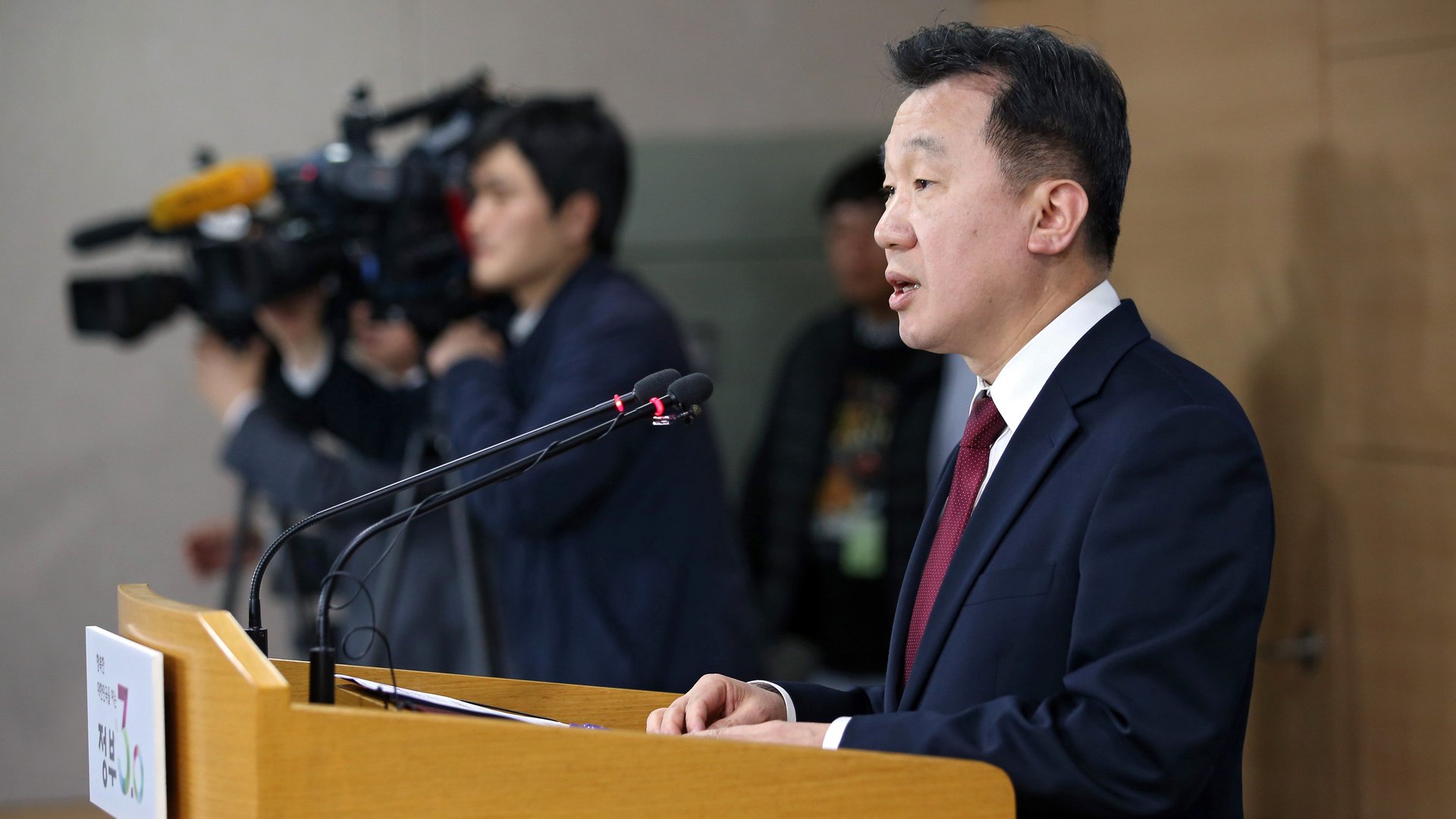China let 13 North Koreans defect through its border because they had “legitimate” ID
The tens of thousands of North Koreans working abroad in restaurants, factories, construction sites, and other settings help their families—and the regime—earn much-needed foreign currency. But last week, 13 such workers—from a restaurant in China run by North Korea’s government—defected to South Korea.


The tens of thousands of North Koreans working abroad in restaurants, factories, construction sites, and other settings help their families—and the regime—earn much-needed foreign currency. But last week, 13 such workers—from a restaurant in China run by North Korea’s government—defected to South Korea.
Yesterday (April 11), China’s foreign ministry made a surprising announcement on the matter, stating that each of the workers had legitimate identification documents, according to a transcript of a press conference.
“After an investigation, 13 DPRK citizens were found exiting the Chinese border with valid passports on the early morning of April 6,” ministry spokesman Lu Kang said. “It is worth noting that these people all had valid identity documents with them and exited the Chinese border in accordance with law.”
The public announcement by China’s foreign ministry was a stark departure from its typical response to North Korean defectors. China is known for sending defectors back to the North, a traditional ally.
Pyongyang has permitted tens of thousands of North Koreans to work in restaurants it runs abroad, reputedly to skirt UN sanctions by earning foreign currency for its nuclear and missile programs. North Korea now runs about 130 restaurants in a dozen or so countries, as well as other types of businesses, including mining and logging.
According to Yonhap, the 13 workers last week fled a government-run restaurant in Ningbo, a city in the Zhejiang province. They then arrived in Seoul via Southeast Asia, a common route for North Korean defectors, and asked for political asylum (paywall). Though only 13 people, it was the largest group exodus of North Koreans in years.
Pyongyang has alarmed the region in recent months with its aggressive behavior. In January it conducted a nuclear test on China’s doorstep, followed by long-range-missile tests in February and March. In response, the UN imposed tough new sanctions last month, while South Korea urged its citizens to avoid North Korean restaurants abroad.
Last week’s defection suggests that punitive measures against the restaurants might be working. According to Jeong Joon-hee, a spokesman for South Korea’s unification ministry spokesman who addressed the matter on Friday (April 8), the defectors left partly because their business took a hit.
Pyongyang could hit back. Punishing the defectors’ family members still in North Korea might counteract the foreign meddling. (Restaurant workers abroad often hail from elite Pyongyang families.)
As for China, it remains to be seen whether letting the North Koreans go was a one-time aberration or the start of a new policy. But as Jeong noted, the prospect of future mass defections from North Koreans living abroad can’t be ruled out.